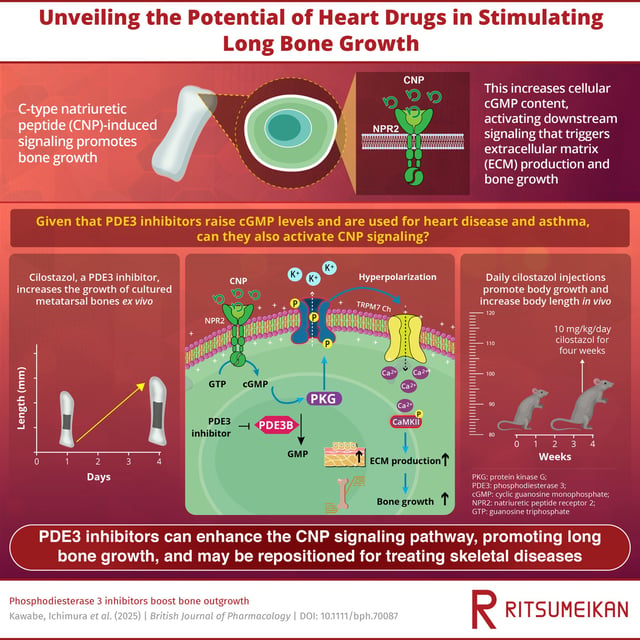Overview
- A study published June 2 in the British Journal of Pharmacology by teams from Ritsumeikan University and Kyoto University showed that cilostazol accelerated bone outgrowth in cultured metatarsal bones and boosted naso-anal length in young mice.
- Mechanistic experiments revealed that PDE3 inhibition raised intracellular cGMP levels by about 1.7-fold, amplifying CNP-activated PKG and TRPM7-mediated calcium influx to drive extracellular matrix synthesis and chondrocyte proliferation.
- The results point to a drug-repurposing opportunity for conditions marked by impaired bone growth, including achondroplasia and idiopathic short stature, by potentiating the body’s own CNP pathway.
- Researchers emphasize that these findings are limited to preclinical murine models and that rigorous clinical trials are required to assess safety, dosing and efficacy in humans.
- Experts warn against self-administration of PDE3 inhibitors for bone growth due to serious cardiovascular side effects such as hypotension and impaired blood clotting.
